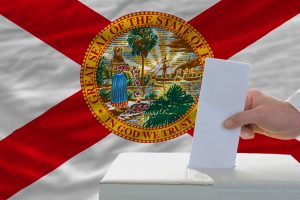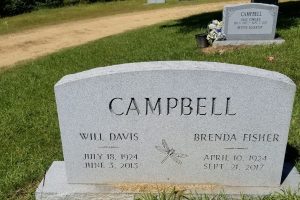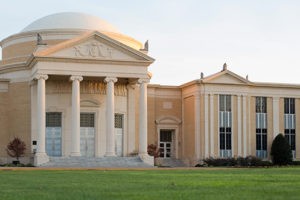The seventh chapter of John offers some important insights into the nature of fundamentalism. Consider the following:
Now some of the people of Jerusalem were saying, “Is not this the man whom they are trying to kill? And here he is, speaking openly, but they say nothing to him! Can it be that the authorities really know that this is the Messiah? [This should be read as a dig at the religious authorities] Yet we know where this man is from; but when the Messiah comes, no one will know where he is from.” Then Jesus cried out as he was teaching in the temple, “You know me, and you know where I am from’ [the implied meaning is, “So you think you know me and where I am from”] I have not come on my own. But the one who sent me is true, and you do not know him. I know him, because I am from him, and he sent me” (7:25-29).
Here some of the people are convinced that Jesus is not of God based on a tradition. A tradition which they have come to accept as fact: The Messiah will have an unknown, mysterious origin.
Jesus, on the other hand, claims to know God and be sent from God. If one could ask Jesus how he knows this I suspect he would say, “I just know.” In other contexts Jesus points to his works of compassion as evidence of his authenticity. But how did he know that he knew God? Jesus obviously trusted his “inner authority” and experience. He just knew.
As the narrative unfolds others base their belief that Jesus could not be the Messiah on scripture: “Surely the Messiah does not come from Galilee, does he? Has not the scripture said that the Messiah is descended from David and comes from Bethlehem, the village where David lived?” (7:41b-42) [Apparently this interpretation of scripture was so prevalent that Matthew incorporated it in his birth narrative in Matt. 2:5-6.]
So Jesus is rejected on the basis of tradition and scripture.
In the fundamentalist stage of my Christian pilgrimage I was taught what to believe. I was told this is what scripture teaches and this became part of my Christian tradition. So, on the basis of tradition and scripture I believed what I believed. This is how fundamentalism works. Scripture and tradition are used to support deeply entrenched beliefs one inherits from one’s group. The group, of course, can be family, church, denomination, peer group, club, political party, nation, etc.
As John’s narrative unfolds some common sense objectors to the close-mindedness of the authorities raise their voices. The temple police refuse to arrest Jesus because, “Never has anyone spoken like this!” (7:46). Does this spark any inquiry or interest on the part of the authorities? The authorities reprimand them by appealing to . . . well, their authority: “Surely you have not been deceived too, have you? Has any one of the authorities or of the Pharisees believed in him?” (7:47-48).
Next, Nicodemus raises a common sense objection based on scripture: “Our law does not judge people without first giving them a hearing to find out what they are doing, does it?” (7:51).
This, too, is countered with sarcasm, a veiled threat, and authority: “Surely you are not also from Galilee, are you? Search and you will see that no prophet is to arise from Galilee” (7:52).
How can we account for such entrenched thinking and closed mindedness? Maybe a contemporary example can help.
According to a recent poll a full third of the Republican base believe that a military exercise called Jade Helm is really just a pretense for President Obama to take over Texas. Now, how is it possible that one-third of the GOP would believe such craziness?
Political blogger Kevin Drum asks that question and contends that most of those who said they believe it don’t actually believe it. He thinks that GOP pollsters simply used the opportunity to show their hate and distrust for President Obama, but deep down they don’t really believe the theory.
In other words, hate and prejudice are the driving factors that account for the poll numbers, not actual belief. I suspect this is true of many entrenched belief systems. We could also add fear and insecurity to the list. These components – disdain, prejudice, fear, and insecurity – keep people from honest inquiry and the genuine pursuit of truth.
Blogger Fred Clark at Patheos.com basically agrees with this, but he takes it a step further:
Over time, these kinds of tribal-cheerleading responses to pollsters and other catechists eventually become required responses. And thus, over time, the things that people pretend to believe as a “way of showing that they’re members in good standing” of their political faction become the things that members of that faction actually believe. The fluff becomes substance — becomes dogma. And the tribe is transformed to conform to this new dogma.
It starts as almost a joke . . . But then the pretense becomes habit and the habit becomes doctrine. What begins as a flippant response to express tribal membership becomes what you must say to show that you are a member in good standing of the tribe. And then, after it becomes what every member in good standing is saying and must say, it becomes what every member in good standing actually believes.
Thus, according to Clark, members of the group actually end up believing what the group teaches, no matter how far-fetched it may seem.
I don’t claim to be able to psychoanalyze why a group becomes entrenched in their traditions and beliefs, but this close-mindedness is the fundamental characteristic of fundamentalism. And herein is the basic difference between progressive and conservative Christians.
It’s not that progressives do not believe what they believe passionately. Many do. I do. But progressives are much more willing to say, “I could be wrong.” Conservatives are much more likely to appeal to their authorities – tradition, scripture, creeds, belief statements, etc. – to affirm what they already believe. Progressives may also appeal to such things (I do), but we are more likely to trust our “inner authority” guided by reason, common sense, human experience and struggle, and certain central values.
Progressives contend for values like compassion, forgiveness, love of neighbor as one’s self, commitment to restorative and distributive justice, the necessity of honest inquiry, and the humble pursuit of truth wherever truth can be found. These values transcend particular beliefs about God, the Bible, salvation, etc. As a progressive Christian I generally find myself more at home with compassionate humanists than conservative Christians, simply because we share core values rooted in acceptance of diversity and commitment to the common good.
The only things I am sure of are these values. For example, I am confident that love trumps all doctrine and dogma and that loving others is far more important than believing ideas about God. How do I know? I am convinced that this is what my “true self” (the Christ self) tells me. I, of course, can support this with a progressive interpretation of scripture, especially by appealing to the life and teachings of Jesus in the Gospels. But ultimately, I just know.






































































